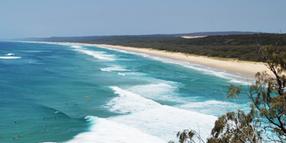Recent rain brings reminder to check for mozzies
Explore Councils by state

Following recent heavy rain, Redland City Council is encouraging all residents to take a proactive approach to mosquitoes and check their backyards for possible breeding sites.
Mayor Karen Williams said the rain, coupled with warm temperatures, provided ideal breeding conditions for both mosquitoes and biting midges.
“Heavy rain can trigger mosquito breeding so Council’s mosquito management team is conducting ground and aerial treatments across Redlands Coast,” she said.
“The team is also investigating known breeding sites and we encourage everyone to do the same in their own backyards.
“Mosquitoes are endemic in our coastal environment and it is impossible to eradicate them completely, but everyone in the community can take simple steps to assist Council in our efforts to reduce numbers.
“People are often surprised how little water it takes for mosquitoes to breed – even the water at the bottom of a pot plant base is enough.
“Now is the perfect time to check your yard, emptying water pooling in items such as toys, boats, fallen palm fronds, blocked roof gutters and old tyres.
“It’s also timely to check your insect screens are in good condition and, in areas where mosquitoes and biting midges are particularly prevalent, consider treating screens with a UV stable insecticide.
“For personal protection from mosquitoes and midges, residents should avoid being outside during peak activity periods at dusk and dawn where possible, use insect repellent and wear light-coloured, long, loose fitting clothing.”
Council aerial spraying last week targeted known breeding sites at Birkdale (including Tingalpa Creek), Wellington Point, Thornlands, Victoria Point, Redland Bay, Russell Island, North Stradbroke Island and all the Southern Moreton Bay Islands as well as Long Island, Lagoon Island, Pannikin Island, Garden Island and Peel Island.
Ground treatments are being conducted at sites in Victoria Point, Cleveland, Capalaba, Thorneside, Mount Cotton, Redland Bay, Thornlands, Birkdale, Wellington Point, Macleay Island, Russell Island, Lamb Island and Karragarra Island.
Regional Mosquito Management Group chairman Cr Paul Gollè said Council had a year-round program to battle mosquitoes, paying particular attention to coastal areas where mosquitoes breed.
“We try to target the mosquito larvae or ‘wrigglers’ before they can fly and bite, and run an inspection program to monitor larvae numbers and the efficacy of our treatments,” he said.
“Council is unable to treat biting midge larvae, as their prime breeding grounds are natural coastal habitats where it is illegal to spray with the required insecticides.”
To keep the community informed, Council has updated its mosquito webpage with a list of the latest treatments, including the dates and suburbs treated, and also has a webpage on managing biting midges.
Council partners with industry research bodies such as the Mosquito Arbovirus Research Committee and other local governments across South East Queensland to keep up to date with the latest research, initiatives and industry practices.